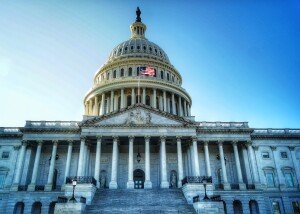The debate between big government and smaller government has been a hotly contested topic for decades. It revolves around the size, role, and scope of government intervention in society. While both approaches have their supporters and critics, the discussion continues to be a crucial one, with each side highlighting specific advantages and disadvantages.
Let’s take a closer look at the pros and cons of both big government and smaller government.
Pros of Big Government:
One of the most significant benefits of big government is its ability to provide a robust social safety net. This includes essential programs such as healthcare, unemployment benefits, and social security, which support vulnerable populations and reduce inequality.
Additionally, big government can implement strong regulations to protect consumers, workers, and the environment from exploitation by powerful corporations. This ensures the well-being of the public and promotes fair and ethical practices.
Moreover, big government can invest in critical infrastructure projects, such as transportation networks, schools, and utilities, to promote economic growth and development. This creates job opportunities and improves the quality of life for citizens.
During economic downturns, big government can also stabilize the economy through fiscal and monetary policies. This can be achieved by increasing spending, lowering interest rates, and implementing stimulus measures.
Lastly, big government can provide essential public services efficiently, such as education, healthcare, public transportation, and law enforcement, ensuring the smooth functioning of society.
Cons of Big Government:
However, with all its benefits, big government also has its drawbacks. One of the most significant concerns is the potential for bureaucracy and inefficiency. Larger government structures can lead to slow decision-making, increased red tape, and hinder innovation and responsiveness.
Moreover, big government often requires higher taxes to fund expansive programs, leading to increased public debt and potential economic burden on taxpayers.
Extensive social welfare programs can also create dependency on government assistance, reducing individual initiative and personal responsibility.
Additionally, there is a risk of overreach and intrusion by big government, infringing on individual freedoms and privacy through excessive regulations and surveillance in the name of public interest.
Pros of Smaller Government:
On the other hand, supporters of smaller government argue that it has its own set of benefits. For starters, smaller government generally means lower taxes and less public debt, allowing individuals to keep more of their earnings and promoting economic freedom.
Moreover, smaller government emphasizes individual freedoms and limited government intervention in personal and economic matters, fostering entrepreneurship and innovation.
With less bureaucracy and administrative overhead, smaller government can also lead to more streamlined and efficient public services.
Lastly, smaller government advocates for decentralization of power, giving more control to local communities and states to address their unique needs and preferences.
Cons of Smaller Government:
However, smaller government also has its downsides. One of the most significant concerns is the lack of a robust social safety net. This means that vulnerable populations may not receive the necessary support during times of need.
Furthermore, reduced government oversight can lead to weaker consumer protections, environmental regulations, and labor standards, potentially favoring powerful interests over public welfare.
Underinvestment in critical public services like education, healthcare, and infrastructure is another potential drawback of smaller government, hindering long-term economic growth and societal well-being.
Lastly, without robust government intervention, income inequality and social disparities may widen, as those with greater resources have more opportunities and advantages.
The choice between big government and smaller government involves trade-offs and depends on societal values, economic circumstances, and policy priorities. Finding the right balance between government intervention and individual freedom is a complex challenge that requires thoughtful consideration of both perspectives.

